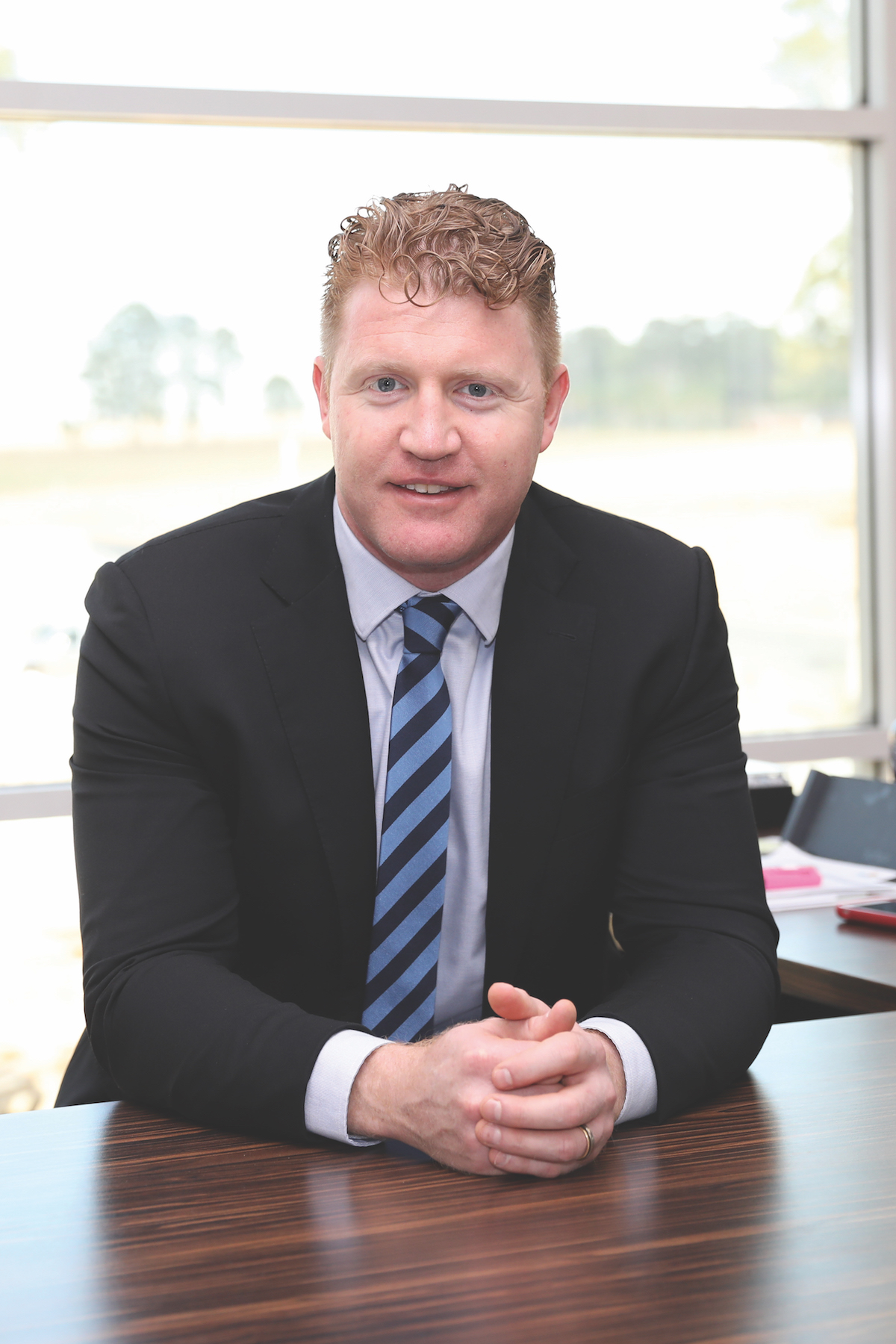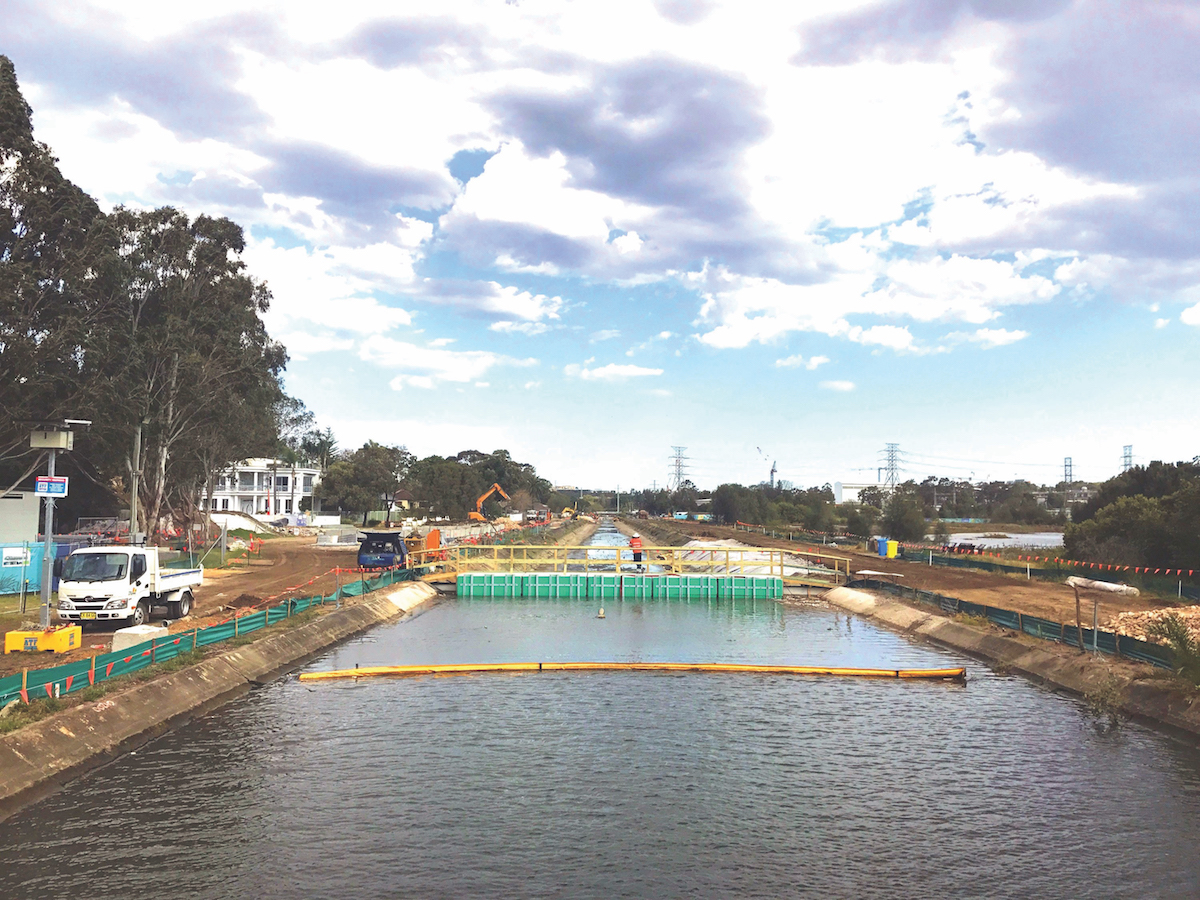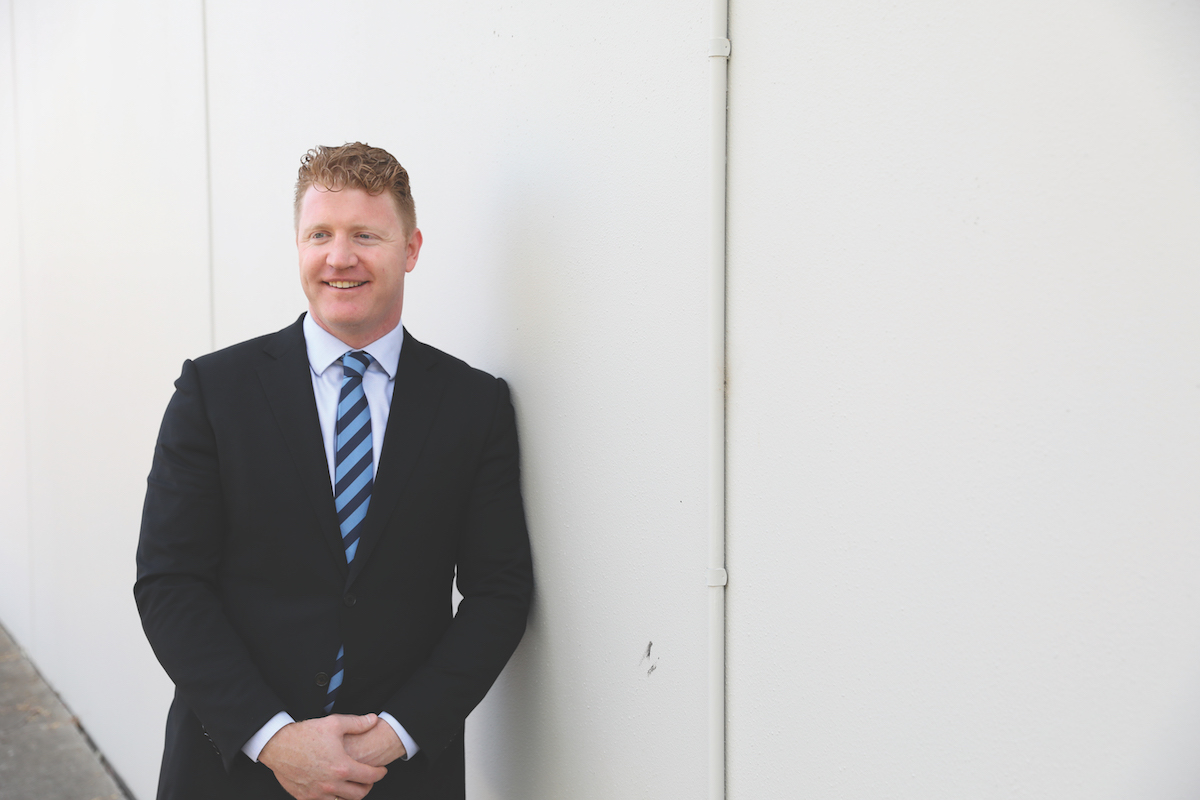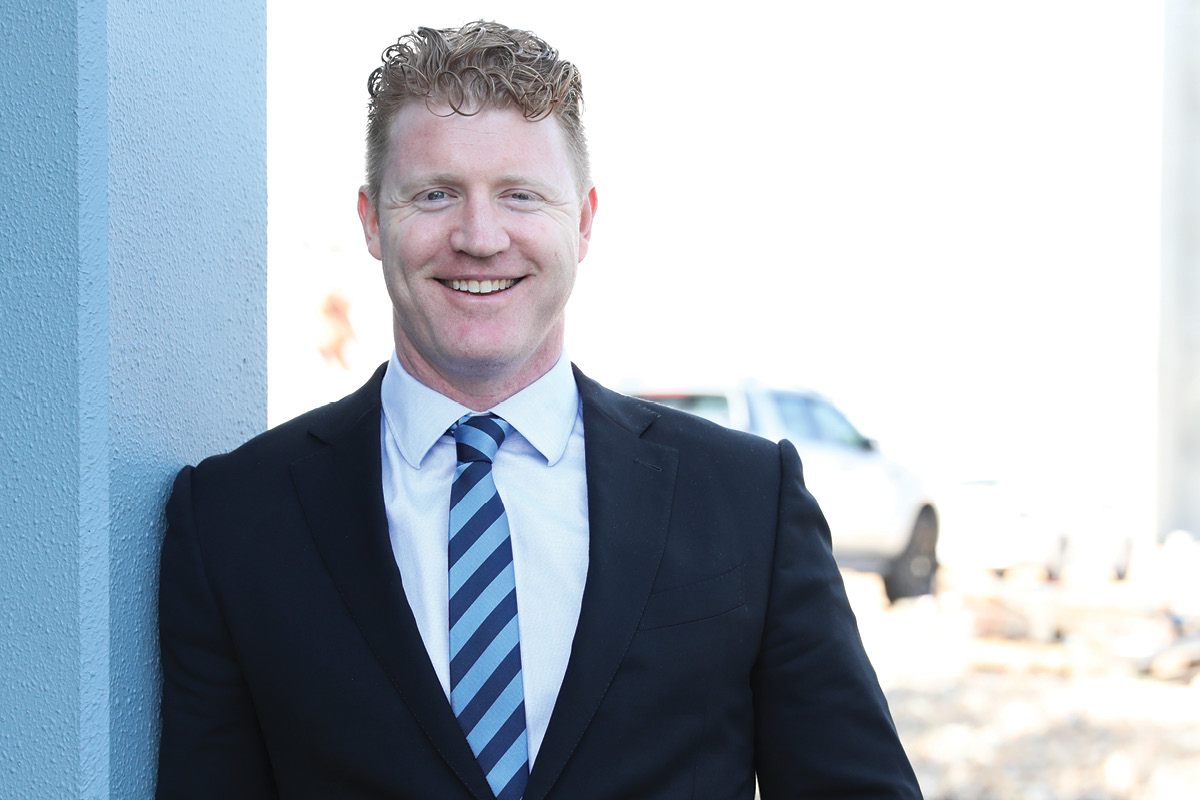David O’Connor has been preparing to be executive general manager at engineering firm Diona since jumping on the tools as a teenager for his father and company founder, John. He fulfilled his dream of running the family business when John stepped back into an advisory role in 2014. David’s impact has been extraordinary in that short time, rolling out a strategic plan, joining Calibre Group and developing a company culture that’s second to none.
When The CEO Magazine sits down with David, he shares his exciting plans for the next five years – explaining how his strategic plan is accelerating the company’s growth, why he is diversifying the company’s services and outlining the new measures being put in place to improve safety on his sites.
The CEO Magazine: The last time we featured Diona, your father, John, was running the show. So how did you come to replace him as executive general manager?
David: Well, I’ve been involved in the business since I was 14. My father has always been very supportive in empowering people to take on new things, and he has always encouraged me to take on more responsibility as the opportunities progressed.
Within our business, we’ve never been sitting around waiting to be promoted before we step up; you tend to get the promotion when you are already doing the job.

As far back as 2010, I was taking on a lot more operational responsibility within the business and, by 2014, we got to a point where Dad was acting in a chairman role and I was acting as the executive.
But it was all very natural; there was no announcement of succession or anything like that. Dad is still very involved and has an advisory role. My brother John Paul also plays a pivotal role in the business, heading up our Queensland operations. Kieran, my younger brother, and my sister Erin also helped out during school and while at university, but have now headed into different industries.
Furthermore, my mother Margaret was the rock of the family – and the company, since it was founded, and only stepped back from a full-time role in the past 15 years.
You threw yourself into just about every aspect of the business. Do you think that has been advantageous to your ability to lead?
I can honestly say it was never strategic, in terms of preparing me to run the company. I have always been really interested in the business. I was the kid who was always sitting in the car on a Saturday while Dad was out working on one of the sites.
So I took on junior roles in my teens like cleaning cars, doing traffic control and labouring, and then started taking on the more technical
site positions like pipe laying, truck driving and operating.
While attending university, when I had a couple of weeks off, I’d take on an intensive role for that short period or fill in for other people within the business.
Often that was related to the support services of Diona, in the plant department, accounts or in payroll. That gave me invaluable experience in managing the plant, equipment and capital.
As I got towards the end of my studies, I took on more of a leadership role on-site, where I was running project crews, and I was able to start using my engineering degree as a site supervisor.
Our roles very quickly become meaningless if we don’t add
value to what our workers are doing on the front line.
That was probably one of the most rewarding roles I’ve had and gave me a thorough understanding of the technical challenges faced by our project teams every day. That background has probably stood me in good stead as I’ve progressed in the business, because I understood the challenges of the work that we are doing on-site.
I tell everyone that our roles very quickly become meaningless if we don’t add value to what our people are doing on the front line. My father’s background was in delivering the work, and he built the business from that foundation. So we have to remember that we’re supporting the work that our guys on-site are doing. If we stick to that mentality, I believe that will support our ongoing success as we scale.
Would you say your leadership style reflects the example set by your father?
Every good leader has people they look up to, and certainly I had a great mentor in my father. Leadership to me is largely about enthusiasm and passion, and I have always been very enthusiastic and passionate about the work that we do here, and the people within the business.
That’s certainly something Dad passed down to me: he always emphasised the importance of valuing your people. If you have a workforce pulling for you, it makes your job a lot easier.
Also, my Dad was a doer; he was never too good for any task, and I’d like to think that’s how our management lead. On top of that, we both have a strong future focus. We are always working towards a very clear future. I have had the benefit of being given a much better education than my father, so I suppose I have used that education to implement structures and processes to scale our business and support our people.
What has been the most important initiative you’ve implemented as executive general manager?
In 2014, I began putting clearer documented strategies in place. I could see the businessreally needed to take on further growth, because we’d spent the past few yearssteadying the ship after exploding in growth over 2009–10, from A$80 million to A$120million.

During those two years, we moved into two new states, Victoria and South Australia, and there was a lot going on. So, in 2011, we decided to slow down and consolidate. We looked at the business structure, got some more depth in our management team and built better redundancy into the business.
Then, in 2014, it was clear that it was time to take the next step, to grow the business again, and to look at expanding our services and reach. So it was at that point we set a clear direction that we called our 2020 strategy.
Can you outline what the 2020 strategy entails?
We asked ourselves, ‘What would a really successful Diona look like in 2020?’ You know, ‘What were the attributes that that business would have? How would its clients feel about it as a business? What scale would it have? What would be its values? And what would be the hallmarks that people would associate with the business that made it successful?’ So we set about creating clear progression opportunities and ensuring there would never be a glass ceiling in the business.
We wanted everyone to understand where the business was going and how that was relevant to them in their role. We also set clear targets for revenue, profit, regional expansion, safety and philanthropy. Then we broke that down into a 12-month plan, and had stepping stones to help us reach our objectives.
That strategy gave us a lot of direction in our day-to-day decision making. You could ask yourself whether a new venture or tender would support and reinforce the direction we were heading in. Just nine months after we had started that process, we started securing a couple of important contracts and got a bit more of a geographical base in the new regions.
Since that time, our future in those new regions of Victoria and South Australia is secure; we’re expanding in Queensland, with more work on the Gold Coast and the Sunshine Coast; and we’re currently looking into opportunities in New Zealand, which is very exciting.
You have long had some high-profile clients. How have you maintained these strong relationships such as the one with Sydney Water, for instance?
Something we’re very proud of is that we’ve never lost a client. Sydney Water is
still one of our best clients. We have a very collaborative relationship with them. This mutual trust is so important and it has allowed us to exceed many of our project, corporate and stakeholder milestones.
Other clients and departments hear of the success we’ve had together, and this has opened new doors. We now have contracts with utility companies like APA; a large gas business across South Australia, Victoria and Queensland; QUU and Energex in South East Queensland; and many other asset owners across the eastern seaboard. We’ve also played a part in almost every large infrastructure project, like the various light rails and major road upgrades.
Interestingly, Diona was behind the town centre upgrade of the country town Singleton in New South Wales. Can you tell us a bit about that?
We have slightly diversified our business to move into some other areas. Where previously we were predominantly straight utilities, we’ve started to take on a lot more general civils and township upgrades.

In 2013, in line with that, we did what they call a revitalisation project for Singleton Council, where we gave the town a facelift. We redid all its roads, footpaths, shopfronts and street furniture, and basically breathed new life into the place. We’ve since won five other contracts with that client as a result of the success of that project, and this has paved the way for many more mixed civil projects in New South Wales, Queensland and South Australia.
In 2016, Diona joined the Calibre Group. Tell us about that.
The Diona business has been an acquisition target for many years, and we received a lot of notice in the past three years in particular. But we were very selective in finding a partner to further support our growth; we needed to be sure there was a sense of aligned destiny.
When the Calibre opportunity came along, I really liked the fit with the organisation. They were big enough to support our growth aspirations, but still agile and dynamic and the culture seemed to be in line with ours.
So really it came down to having that alignment around culture, but we could see it would also provide us with more depth and new opportunities. That was about two years ago, and it has had the desired effect, inspiring a dynamic period of growth.
There have been challenges managing the complexity of a multidisciplinary group, aligning strategy and collaborating as part of a group, but we have grown by 50% in a short time, so it’s been very rewarding for our entire team. In fact, in the next six months, we will have gained the scale and geographic spread we originally planned to complete by the end of 2020.
You are clearly proud of the culture you’ve developed in Diona. What makes it so special?
We talk a lot about tenacity in our business. It’s probably the buzzword for us around culture. Tenacity for us is really that ‘sleeves rolled up’ attitude – that kind of humble willingness to jump in and do what’s required. We have a tenacity award every month to acknowledge people within the business who are the first to get up and help, and show that real commitment to helping out their colleagues.
One of the challenges was always going to be maintaining our culture. I knew our success would be dictated by our ability to bring in new people and support them.
Transparency is important too. We find that’s the best way to communicate not only what’s going well for the business but also where the challenges are. We don’t hide from our problems; we tend to talk about them openly. And, of course, there’s also collaboration, which has proven so important as part of the Calibre Group.
If we are doing those three things well, and with a humble attitude, we know we will get the performance we need out of our business and for our clients. The question is, ‘How do we transfer the culture we currently have to our new geographic regions, as we continue to expand?’ So we’ve talked about the concept of seeding, which is where we pick up people whom we identify as having strong values, and they form a key part of our future growth so that we can maintain an engaged local workforce that carries on the business culture we’ve created here.
You even brought an expert in to help improve communication; right?
I met John Lane-Smith [CEO of Eclat People Solutions] by chance and immediately hit it off with him. I could see he was a gifted mentor, and could be an asset for us, teaching our staff how best to communicate with their teams.
After becoming part of a larger group, and growing by 50%, I knew one
of the challenges was always going to be maintaining our culture. I knew our success would be dictated by our ability to bring in new people and support them in the right way when they first came into the business.
When I brought John in two years ago, I gave him a very clear mandate around the opportunities and challenges we were facing. He was asked to help us build collaboration within teams, to build understanding where there was conflict, and to understand how we can better communicate with each other. I also wanted him to help us identify future leaders, and show us where people needed support to develop their skills.
At the end of the day, it’s never the work that’s hard; the work is always achievable. It’s generally the personalities, or the challenges around communication that tend to get in the way of achieving things. So John has been an extremely useful resource to help improve that communication.
A lot of your suppliers and contractors come from within Diona. What are the benefits of that?
Indeed, some of our best performers are the people who want to go into business for themselves. In some businesses, that might not be well supported or be seen as a threat, whereas we see that as an opportunity to develop contractors. We actually have processes in place to help those budding contractors become fully fledged contractors.
That can mean supporting them financially through cashflow, or helping them to scale their business through the purchase of plant and equipment, or even helping them to transition from employee to an hourly or lump-sum contractor.
I could see that this was a much more beneficial path than trying to self-perform
all our work. And that’s certainly been one of the key drivers behind our growth. It is a direct correlation to how many of these small companies have grown. So these teams generally work for us because they know us and trust us.
It’s easier than working for companies they’re unfamiliar with, and we’ll guarantee them long-term opportunities, so they don’t have to worry about where their next job is coming from. We find that because of the way we lend them a hand, they reward us with plenty of flexibility and understanding when the jobs do get difficult.
They’ll willingly jump in and get the job done, so we don’t have to sit back and wonder how we’re going to solve a potential commercial dispute. That ability to maintain these relationships is what differentiates us.
Precision Pipelines is an example of a contractor from outside the company. What made it the right fit?
That’s right. Damien [Diskin] wasn’t a traditional employee-to-contractor story;
he had an existing business. And when we met him, we saw an alignment in culture.
Damien comes along to our foreman workshops, and we all talk about what’s happening in the business, what the challenges are, and where we all need to improve.
Precision Pipelines has been a steady partner. We rely greatly on our contractors to buy in to our culture and maintain the level of excellence we have cultivated.
The safety of your employees is always the top priority, and I believe you’ve been carrying on the great work your father was doing in terms of creating
a safer work environment?
Dad’s leadership approach of valuing people is where the safety culture within the business started. Back then, it was about changing the way his workers felt about safety officers, understanding they were there to help take care of their wellbeing rather than officials trying to catch them out.
Now, when we look at our new 2020 strategy, the number one priority is that people feel safe when they work for us. They feel like they’re more likely to go home every day working for us than they are with someone else.
We focus an incredible amount of energy on what we call our lead indicators. They’re the things we’re doing to support the safety of our people before an incident occurs. We’ve set ourselves some fairly challenging targets around how we should operate.
We have initiatives like the ‘take five’, which is a process we undertake when a situation on the work front changes. We want our people to just stop for a second, recognise what’s changed in their work environment, and then amend their approach to the task based on what’s changed.
The focus on lead indicators has and continues to drive better results for us.
I am proud of the evolution we continue to see in our business in this regard.



